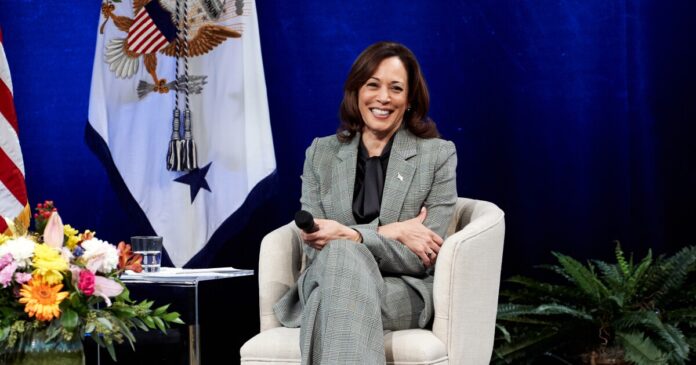
When the Democratic Party convenes for its national convention on Aug. 19, it will get to select its presidential candidate, primary results notwithstanding.
And if Vice President Kamala Harris is nominated to replace President Joe Biden atop the ticket, the North Carolina State Board of Elections (NCSBE) must act accordingly and add her to this year’s ballot.
State law is fairly clear on the procedural role the Board of Elections plays in determining which candidates get onto the ballot: Under North Carolina General Statute 163-213.8, each recognized political party in North Carolina “shall allocate delegate positions in a manner which reflects the division of votes of the party primary consistent with the national party rules of that political party.”
And when there’s a conflict between the certified primary results for a political party and that party’s national rules, under the same statute, the state party’s executive committee “has the authority to resolve the conflict by adopting for that party the national rules.”
In other words, if the national Democratic Party decides at its convention next month that Kamala Harris and her selected running mate should run for president and vice president, then that is who the state Election Board will add to the North Carolina ballot.
“We will await the candidates who the Green Party and the Democratic Party nominate in August, and they will go on the ballot,” said Pat Gannon, spokesman for the NCSBE.
“There is no role for the five-member State Board of Elections in that process,” Gannon added, distinguishing between NCSBE administrative staff and the five-member bipartisan board of political appointees.
The five-member board has endured charges of partisanship — even from within its own ranks — when dealing with politically-charged topics.
For example, the five-member board’s Democratic majority of three outvoted its two Republican members and delayed certification of three new political parties this year to investigate the petition campaigns those groups undertook for official recognition. One of the board’s GOP members accused the board’s majority of succumbing to pressure from state and national Democrats determined to block candidacies from third parties that could draw votes away from their nominees.
Ultimately, the board voted to recognize the Constitution Party and We the People, whose choice for president is Robert F. Kennedy, Jr.
The Democratic majority voted to deny certification of Justice for All, whose preferred presidential candidate is Cornel West.
Newly recognized political parties face slightly different rules for getting their candidates on the North Carolina ballot. Presidential candidates for newly recognized parties “shall be entitled” to have their names on official ballots upon paying a filing fee.
The Republican Party has officially nominated former President Donald Trump and his running mate, U.S. Sen. JD Vance, and that’s who will represent the GOP on the North Carolina ballot. The Libertarians have submitted their presidential and vice-presidential candidates, Chase Oliver and Mike ter Maat, for addition to the state’s ballot. And the Constitution Party’s Randall Terry and Stephen Broden will be on the North Carolina ballot.
But the state Elections Board will not know for another few weeks who to add from the Democratic Party and the Green Party.



